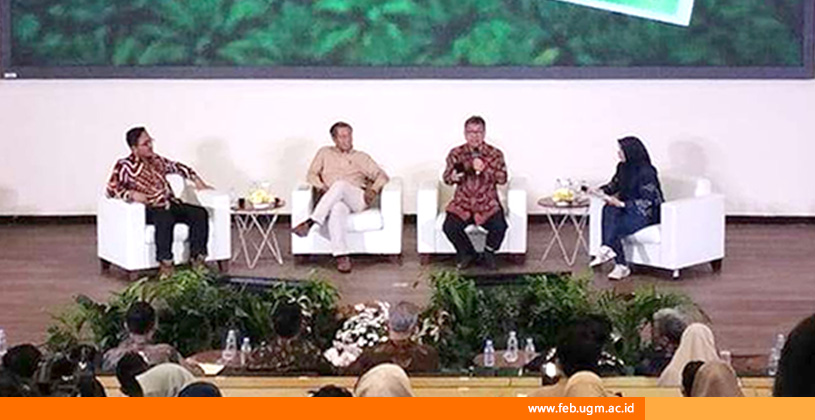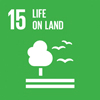National Palm Industry Challenges Amid Negative Campaigns and Trade Wars
- Details
- Written by Herianto
- Category: News
- Hits: 340

Deforestation and carbon emissions have often become a significant concern for Indonesia's palm oil industry. Many negative global campaigns label the national palm oil industry as environmentally unfriendly and contributing to climate change.
"The trade wars in the global vegetable oil market are the main motive behind these negative campaigns," said the head of the Palm Oil Study Center at IPB, Prof. Budi Mulyanto, on Thursday (26/9/2024) in a discussion titled "Palm Oil in Sustainable Development: A Review of Science, Economics and the Environment at the Sukadji Ranuwihardjo Auditorium, MM FEB UGM.
The discussion on the palm oil industry was organized through a collaboration between FEB UGM, Palm Oil Strategic Studies (IPOSS) Kompas Group, FEB UMY, and FEB UNY. The forum aimed to comprehensively assess the existence and contribution of the palm oil industry to the Indonesian economy from a scientific, economic, and environmental perspective. Speakers included Prof. Budi Mulyanto (head of the Palm Oil Study Center at IPB), Dr. Petrus Gunarso (forestry and environmental expert), and Dr. Akhmad Akbar Susamto (head of the Master of Development Economics program at UGM).
Budi explained that the negative campaigns were intended to tarnish the image of palm oil to maintain the reputation of European vegetable oils. In addition, the campaigns aimed to protect European farmers and were part of a strategy to secure lower prices for palm oil products.
Meanwhile, Petrus Gunarso, Ph.D., emphasized that palm oil is an exotic and controversial commodity that continues to be debated, including through dialogues at the World Trade Organization (WTO). He applauded FEB UGM's efforts to create a platform for discussion on palm oil.
"I commend UGM for hosting discussions on palm oil. Not many state universities in Indonesia welcome palm oil this way," he said.
The vital role of palm oil in the national economy was also emphasized by the Head of the Master of Development Economics Program at FEB UGM, Akhmad Akbar Susamto, S.E., M.Phil, Ph.D. He explained that palm oil is a national strategic commodity that plays a significant role in Indonesia's economy. The palm oil sector contributes significantly to Gross Domestic Product (GDP), job creation, and community welfare improvement. However, he also highlighted the industry's significant challenges, particularly from a sustainable development perspective.
The first challenge comes from the palm oil companies, including the large amount of land required and the monoculture nature of the cultivation. Challenges also arise from the negative behavior of some palm oil companies and the weakness of the country's legal institutions.
"If palm oil is to play a greater role in sustainable development, the view of palm oil as a valuable resource must include serious efforts to overcome these challenges. Without such efforts, the role of palm oil in sustainable development will continue to be questioned," Akbar said.
Reportage: Herianto/MEP UGM
Editor: Kurnia Ekaptiningrum
Sustainable Development Goals








